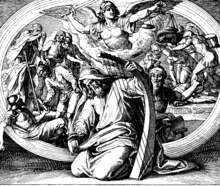
When you are old—as I am—a single word or event can release a flood of memories. That happened to me when I noticed that today’s responsorial psalm is number 102. For this psalm is one of the seven penitential psalms that used to be an important element of Catholic piety. I remember, for instance, when I was ordained subdeacon, deacon and priest. After each ceremony, we were required to say all seven of the penitential psalms as a penance. You might wonder why a penance was imposed on the young men who had just then received the blessing of ordination. The reason is connected with the recognition of the great gift that had been bestowed on the new deacons or priests. The idea is that no one could be worthy of such grace and, further, that no one would fully appreciate the blessings he had received. And so, in order to compensate for that inevitable failure, a penance was imposed on us. These psalms were not limited to the clergy in their use, for lay men and women, in those days, often used the psalter as a prayer book. Saint Thomas More, for one, knew them by heart and would recite them in prison as he awaited his execution. Catholics generally were aware of their failings and a penitential mood was universal. Those who were educated would know these psalms in Latin and recited them to ask for pardon. We don’t seem to have a similar concern nowadays. Should we?
The penitential Psalms are numbers 6, 32, 38, 51, 102, 130 and 143 in modern Bibles or 6, 31, 37, 50, 101, 129 and 142 in the Douay-Rheims translation.









